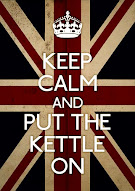 A L Kennedy on Writing:
A L Kennedy on Writing:OK, I concede that it's not mountaineering, but even in good health starting a new book consumes an awful lot of energy.
So, Best Beloveds, the New Novel. I'm calling it that in the frail hope that it will hear me and turn into one – at the moment it is, of course, the New Notebook Full Of Stuff and A Smattering of Early Paragraphs. A long project is, as you will realise, a massive and potentially ludicrous commitment of time and enthusiasm which could come apart in your hands at any moment, could promise wonders, cough twice and then turn into ashes and sand at the end of three years' preparation and one year's labour.
Its customary horrors have been enhanced this time around by my continuing flu. Many commiserations to those of you who are also still staggering along in the grip of the season's available viruses – you will be well able to imagine how much serious work I've actually managed to get done whilst feeling that I am trapped on a ship in high seas with someone who is trying to insert a migraine into my face using a dulled Black and Decker router. Round and round the fretting runs - I should be further ahead. I should get better more quickly. I should have a nice little bundle of pages to ponder and hit with a stick by now. I should…
Well, frankly, I pretty much always should be somewhere and someone other than I am at this point. The initial stages of all my novels have always been sabotaged by (in order) my day job, my part-time job, the other writing I was doing while I was writing them, the work I was meant to have finished long before I got to this point and – naturally – the hideous diseases which flesh is heir to, if you persist in making it work and sit on trains and never give it days off and trips to the zoo with balloons. Or even without balloons. And if you have, in general, been unable to continue your programme of inspirational and nourishing treats as you would have wished.
I am more worried than usual, but then again I am always more worried than usual – so that must be usual, right?
A greater part of writing than you might suppose relies upon the writer ignoring or temporarily setting aside a whole circus troupe of ugly fears and just typing in spite of them. Once I've dodged my own novel-related anxieties I can get used to the familiar cycle of enthusiasms and despairs – I wake up in the middle of the night having finally found out the male protagonist's proper name: he promptly stops speaking to me and I lie in the dark wondering what he's up to, if he's found someone else to let him be expressed ... I suddenly feel I have exactly the emotional tone and progression for the opening section, it is exciting, clear and inviting: I reach the page and it all veers off somewhere horrible and leaden while I get overly concerned about a tiny and possibly irrelevant description ... I think I know the title of the book, I seem to have known it for quite a while and to be happy with it: but is it a good title, will it work?
Beyond this there is the sense – even if you're entirely well – that putting one word after another is impossibly tiring. Although that's quite likely to be a good sign. Falling asleep in my special typing chair after a couple of pages at the start of a book is, in fact, often an excellent sign. This is because writing prose is exhausting. Not in the way that coal mining is exhausting, or dragging the body of your frozen companion over an icy Alpine pass is exhausting, but it's demanding, nonetheless. By the end of the novel, things will be easier. Months of concentrating as hard as you are able and then a little bit harder still, of trying to think about sense and musicality and scansion and psychology and tone and metaphor and energy and pace and a number of additional technical doodads will have beaten what's left of your mind into shape and the novel itself will be helping – the characters will be happy to dictate what they will and will not stand for and prior events will be contributing their consequences.
But I find that, once a book is finished. when I return to it for the first set of overall rewrites after a couple of weeks' break, all of my hard-won stamina has melted away and I am, once again, pathetically feeble. Which is why I'm always happy when a new writer comes to see me and says, in a puzzled and down-hearted manner, something along the lines of, "It's hard." This quite often tends to mean that they have started putting in the amount of effort their work (and the kind lady and gentleman readers) deserve.
There are exceptions to this Rule of Tiredness – there are always exceptions in writing. Except when there aren't, which would be the exception to that. I'm never in any way dismayed when something is so anxious to be written that it rips into the page as soon as I give it the chance and won't let me be until it's done – and if I have to load up on Kopi Luwak and Red Bull and hold on tight for a few days to keep up, then so be it. But I've never known that to happen with the start of a novel. In my experience, that tends to be much more like being naked and maliciously observed, spirit voices gathering on all sides to mutter things like, "You're shit." And "This is a bad idea." And "You really have no arse to speak of at all, do you?"
Meanwhile, I look forward to being no longer poorly and therefore able to avoid the whole novel-writing issue in a more traditional manner - by dusting, making soup, staring, pacing, repainting the stairwell, dozing, crying, fainting ... Even so, I'll always eventually end up battering away at the thing until it batters back. It's lovely and it's mind-bending and I wouldn't be without it. Onwards.
--
A L Kennedy, The Guardian, Friday 22 January 2010




croppedsidebar.jpg)

.png)


















I think different people have different chokepoints. I, for one, find the first third of a novel relatively easy to write - in fact, the hard part is doing anything else important during that time the Muse sits astride my shoulders and flogs me onward.
ReplyDeleteSooner or later, though, I have to tackle that middle part that carries the story to its end. Then the hard work begins.